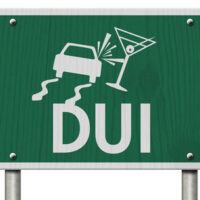Am I Guilty of DUI if I Fail a Field Sobriety Test in Cobb County?

Although standardized field sobriety testing has become common across Georgia (and the U.S. in general) as a way to determine whether a person was under the influence while driving, it remains an extremely controversial issue. This is because failing a field sobriety test doesn’t necessarily prove that a person was intoxicated, as a definitive blood or breath test would. This is one of the reasons why it’s so important for those who have been accused of driving under the influence to work with an attorney who can help dispute misleading field sobriety test results.
Examples of Field Sobriety Testing
Field sobriety tests are intended to help law enforcement assess a driver’s level of impairment. As a part of this testing, officers often make use of the Horizontal Gaze Nystagmus (HGN) test, which involves checking (by moving an object like a pen or flashlight across a driver’s field of vision) whether the eye can follow a moving object, whether eye movement is distinguishable at maximum peripheral rotation, and whether there is a jerking movement within 45 degrees of the center of the eye. Any issues with these tasks can be used by an officer as evidence of impairment.
Another field sobriety test utilized by officers is the “Walk and Turn” test, which assesses a driver’s divided attention. The test involves taking nine heel-to-toe steps, turning on one foot and then returning to the initial starting point. Those who fail to walk heel-to-toe, who step off the line, turn at the wrong time, or require the use of their arms while walking will likely fail this test. Finally, officers may finish the test by asking the driver to do a One Leg Stand, or to stay balanced on one foot for 30 seconds without hopping or using his or her arms.
Are Field Sobriety Tests Accurate?
While the three field sobriety tests we mentioned are generally considered to be an accurate way to tell whether someone is impaired, they are by no means foolproof. Prosecutors may use these tests to try to prove that a driver was intoxicated, but such evidence can be combated by evidence that a driver was fatigued, on a legal dose of prescription medications, suffered from a medical condition, or didn’t understand the officer’s directions. At the end of the day, prosecutors will typically need more than the results of a field sobriety test to convict a person of driving under the influence. They will, for instance, also need more objective proof, like the results of a breathalyzer, blood, or urine test. Even these results, however, can be disputed if there is evidence that the device wasn’t calibrated properly or was administered incorrectly.
Get Started on Your DUI Defense Today
To learn more about your rights following a DUI arrest, or to begin building a strong defense to accusations of driving under the influence, call our office at 678-853-2500 and set up a meeting with dedicated Cobb County DUI lawyer Andrew L. Schwartz, P.C. today. The sooner you contact us, the more quickly we can get to work on your case.
Sources:
nhtsa.gov/sites/nhtsa.gov/files/documents/sfst_ig_refresher_manual.pdf
nhtsa.gov/dwi-detection-and-standardized-field-sobriety-test-sfst-resources
